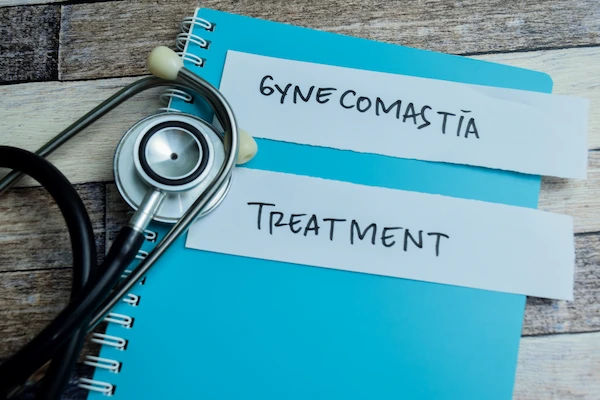Understanding Thyroid Antibodies Tests and Results
Learn about thyroid antibodies tests, what they detect, how to interpret results, and how positive antibodies can affect thyroid health and future risks.


Thyroid health is crucial for overall well-being, as the thyroid gland regulates metabolism, energy levels, and many other bodily functions. Sometimes, the immune system mistakenly attacks the thyroid, leading to autoimmune thyroid disorders. A thyroid antibodies test helps diagnose these conditions. If you or a loved one has been advised to take this test, you may have questions about what it means.
This article will explain everything in simple terms; what thyroid antibodies are, why the test is done, how to interpret results, and what steps to take next.
What Are Thyroid Antibodies?
Antibodies are proteins produced by the immune system to fight infections. However, in autoimmune diseases, the body mistakenly attacks its own tissues. Thyroid antibodies target the thyroid gland, leading to inflammation and dysfunction.
The most common thyroid antibodies tested are:
- Thyroid Peroxidase Antibodies (TPO antibodies) – Attack an enzyme involved in thyroid hormone production.
- Thyroglobulin Antibodies (Tg antibodies) – Target thyroglobulin, a protein used to make thyroid hormones.
- Thyroid-Stimulating Hormone Receptor Antibodies (TRAb) – Affect TSH receptors, leading to overactive thyroid
(Graves’ disease).
High levels of these antibodies indicate an autoimmune thyroid condition.
Why Is a Thyroid Antibodies Test Done?
Doctors recommend this test if you have symptoms of thyroid dysfunction or if other thyroid tests (like TSH, T3, T4)
show abnormalities. Common reasons include:
- Symptoms of Hypothyroidism (underactive thyroid): Fatigue, weight gain, cold intolerance, dry skin, hair loss, depression.
- Symptoms of Hyperthyroidism (overactive thyroid): Weight loss, rapid heartbeat, anxiety, sweating, tremors.
- Family history of thyroid disorders (Hashimoto’s or Graves’ disease).
- Pregnancy-related thyroid issues (some women develop thyroid antibodies after childbirth).
- Monitoring autoimmune thyroid disease progression.
Understanding Your Test Results
Thyroid antibody test results can be confusing. Here’s what they mean:
1. Normal (Negative) Results
- TPO antibodies: < 9 IU/mL (may vary by lab)
- Thyroglobulin antibodies: < 4 IU/mL
- TRAb: Negative
A negative result means no significant thyroid antibodies were detected. However, if symptoms persist, further testing
may be needed.
2. Elevated (Positive) Results
- High TPO or Tg antibodies: Likely Hashimoto’s thyroiditis (leading to hypothyroidism).
- High TRAb: Likely Graves’ disease (causing hyperthyroidism).
Even if thyroid hormone levels are normal now, positive antibodies mean you are at risk of developing thyroid disease in the future.
How Thyroid Antibodies Affect Your Health
Autoimmune thyroid diseases progress slowly. Here’s how they impact health:
1. Hashimoto’s Thyroiditis
- The immune system gradually destroys the thyroid, leading to low hormone production (hypothyroidism).
- Symptoms worsen over time; fatigue, weight gain, brain fog, and joint pain are common.
- Treatment usually involves thyroid hormone replacement (levothyroxine).
2. Graves’ Disease
- Antibodies stimulate the thyroid to produce excess hormones (hyperthyroidism).
- Symptoms include anxiety, rapid heartbeat, weight loss, and bulging eyes (in some cases).
- Treatment may include antithyroid medications, radioactive iodine, or surgery.
3. Pregnancy & Thyroid Antibodies
- Untreated thyroid disorders can affect fertility and pregnancy.
- Women with high antibodies have a higher risk of miscarriage, preterm birth, or developmental issues in the baby.
- Regular monitoring and medication adjustments are crucial.
Managing Thyroid Antibodies & Improving Thyroid Health
While autoimmune thyroid diseases cannot be cured, their effects can be managed effectively. Here’s how:
1. Medical Treatment
- Hypothyroidism: Synthetic thyroid hormones (levothyroxine) restore normal levels.
- Hyperthyroidism: Antithyroid drugs (methimazole), beta-blockers, or radioactive iodine therapy.
2. Diet & Lifestyle Changes
- Eat a balanced diet: Include selenium (Brazil nuts), zinc (pumpkin seeds), and omega-3s (fish) to support thyroid function.
- Avoid excess iodine (if advised by your doctor).
- Reduce stress: Chronic stress worsens autoimmune conditions—practice yoga, meditation, or deep breathing.
- Exercise regularly: Helps with metabolism and energy levels.
3. Regular Monitoring
- Get thyroid function tests (TSH, T3, T4) periodically.
- If antibodies are high but hormones are normal, monitor for symptoms and retest as needed.
Get Your Health Assessed
When to See a Doctor
Consult a doctor if you:
- Have persistent symptoms of thyroid dysfunction.
- Have a family history of thyroid disease.
- Are pregnant or planning pregnancy with known thyroid issues.
- Need help interpreting your test results.
At Apollo 24|7, you can easily book a thyroid test or consult an endocrinologist for personalized advice. Early detection and treatment can prevent complications.
Final Thoughts
Thyroid antibodies tests help identify autoimmune thyroid disorders before they cause major symptoms. If your results
are positive, don’t panic, many people manage these conditions well with medication and lifestyle adjustments. Stay informed, follow your doctor’s advice, and take proactive steps to keep your thyroid healthy.
Need help? Schedule a thyroid test or speak to an expert on Apollo 24|7 today!
Consult an Endocrinology for the best advice
Consult an Endocrinology for the best advice

Dr. Arunava Ghosh
General Physician/ Internal Medicine Specialist
10 Years • MBBS,MD(GENL.MED.),DM(ENDOCRINOLOGY)
Kolkata
VDC Clinic, Kolkata

Dr. Shiva Madan
Endocrinologist
10 Years • MBBS , MD (General medicine) , DM (Endocrinology)
Bikaner
Sushma diabetes and Endocrine center, Bikaner

Dr. Nilotpal Mitra
General Physician/ Internal Medicine Specialist
21 Years • MBBS, PGDGM ( Geriatric Medicine), ACMDC (an Advance course in Diabetes and cardiovascular diseases from PHFI and WHF )
Kolkata
MCR SUPER SPECIALITY POLY CLINIC & PATHOLOGY, Kolkata
(25+ Patients)

Dr. Anand Ravi
General Physician
2 Years • MBBS
Bengaluru
PRESTIGE SHANTHINIKETAN - SOCIETY CLINIC, Bengaluru

Dr. E Prabhakar Sastry
General Physician/ Internal Medicine Specialist
40 Years • MD(Internal Medicine)
Manikonda Jagir
Apollo Clinic, Manikonda, Manikonda Jagir
(175+ Patients)


.webp)


